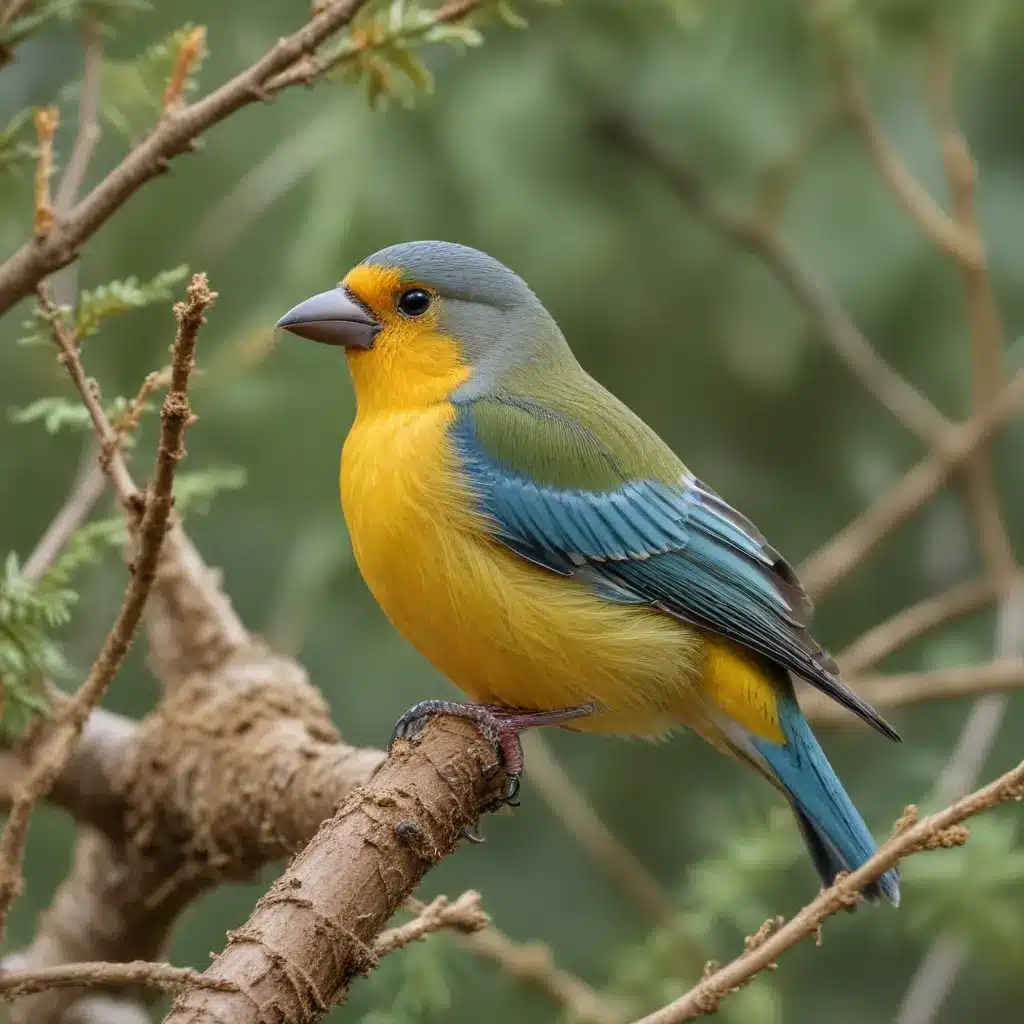
Avian Dietary Considerations
As an experienced avian caretaker, I know that providing the right nutrition is essential for the health and well-being of our feathered friends. Birds have unique dietary needs that vary by species, life stage, and individual circumstances. In this comprehensive guide, we’ll explore the key nutritional requirements of birds, common dietary challenges, and specialized feeding strategies to ensure our avian companions thrive.
Nutritional Requirements of Birds
Birds require a delicate balance of macronutrients and micronutrients to support their active lifestyles and diverse physiological needs. Macronutrients like proteins, carbohydrates, and fats provide the essential energy and building blocks for growth, maintenance, and reproduction. Micronutrients, such as vitamins and minerals, play crucial roles in immune function, feather health, bone development, and a myriad of other vital processes.
The specific nutritional requirements can vary greatly between seed-eating, insectivorous, and nectarivorous birds. For example, seed-eaters typically require higher levels of carbohydrates and fats, while insectivores need more protein-rich foods. Nectarivores, on the other hand, have a greater need for simple sugars and certain vitamins found in nectar. Paying close attention to these species-specific differences is essential for ensuring optimal health and performance.
Factors Influencing Bird Diets
Beyond species-specific needs, a bird’s life stage and activity level can also significantly impact its dietary requirements. Juvenile birds, for instance, often need more protein and calcium to support rapid growth and skeletal development. Adult birds may require higher energy intake during periods of intense activity, such as migration or breeding, to fuel their increased metabolic demands.
Environmental conditions can further influence a bird’s nutritional needs. For example, birds living in colder climates may need more calories to maintain their body temperature, while those in warmer regions may require greater water intake and adjusted nutrient ratios to prevent dehydration and heat stress.
Common Dietary Challenges in Birds
Obesity and Malnutrition
Despite our best intentions, birds can sometimes struggle with dietary imbalances that can lead to serious health issues. Obesity, for instance, is a growing concern in captive birds, often caused by overfeeding, lack of exercise, and an abundance of high-calorie, nutrient-poor foods. Conversely, malnutrition can result from an inadequate or unbalanced diet, leading to deficiencies in essential vitamins, minerals, and other critical nutrients.
Both obesity and malnutrition can have far-reaching consequences, including compromised immune function, reproductive problems, and an increased risk of metabolic disorders and other diseases. As avian caretakers, it’s our responsibility to carefully monitor our birds’ body condition and adjust their diets accordingly to prevent these detrimental outcomes.
Dietary Restrictions
Some birds may have specific dietary restrictions due to allergies, intolerances, or underlying medical conditions. For example, certain birds may be sensitive to certain grains, nuts, or even specific vitamin or mineral supplements. In these cases, it’s crucial to work closely with avian veterinarians to identify the appropriate dietary modifications and ensure our feathered friends receive the nutrients they need without triggering adverse reactions.
Specialized Diets for Birds
Seed-Eating Birds
For seed-eating birds, providing a high-quality seed mix tailored to their species is essential. These mixes should include a variety of seeds, such as millet, sunflower seeds, and canary seed, to ensure a balanced intake of carbohydrates, fats, and proteins. Supplementing the seed mix with fresh fruits, vegetables, and occasional protein sources, like cooked eggs or mealworms, can further enhance the nutritional profile and promote overall health.
Insectivorous Birds
Insectivorous birds, such as songbirds and some parrots, have a greater need for protein-rich foods to support their active lifestyles and complex metabolic processes. In addition to specialized insect-based diets, these birds may benefit from supplementation with high-quality protein sources, such as cooked lean meats, egg-based products, or commercially available insect-based formulas.
Nectarivorous Birds
Hummingbirds and other nectarivorous birds require a diet rich in simple sugars and certain vitamins to fuel their high-energy lifestyles. Homemade or commercial nectar formulations, carefully balanced to mimic the nutrient profile of natural flower nectar, can provide these birds with the sustenance they need. It’s important to avoid using artificial sweeteners or food coloring, as these can be harmful to the birds.
Feeding Strategies for Birds with Special Needs
Accessibility and Presentation
For birds with physical limitations or special requirements, the way we present their food can make a significant difference in their ability to access and consume it. Ensuring that feeders and foraging opportunities are designed with the bird’s unique needs in mind, such as perch height, feeder design, and accessibility, can greatly improve their nutritional intake and overall well-being.
Monitoring and Adjustments
Closely observing a bird’s feeding behavior and monitoring its physical condition can provide valuable insights into the effectiveness of its current diet. By making timely adjustments to the nutrient composition, presentation, or quantity of the food, we can help ensure our feathered friends maintain optimal health and vitality.
Remember, every bird is unique, and what works for one may not be the best solution for another. Staying flexible, observant, and willing to experiment with different feeding strategies can be the key to unlocking the perfect nutritional plan for each of our avian companions.
For more information on the latest advancements in avian nutrition and care, be sure to check out the resources available on the Mika Birds Farm blog. Our team of experts is dedicated to helping you navigate the ever-evolving world of bird care, ensuring your feathered friends thrive under your watchful eye. Happy feeding!


